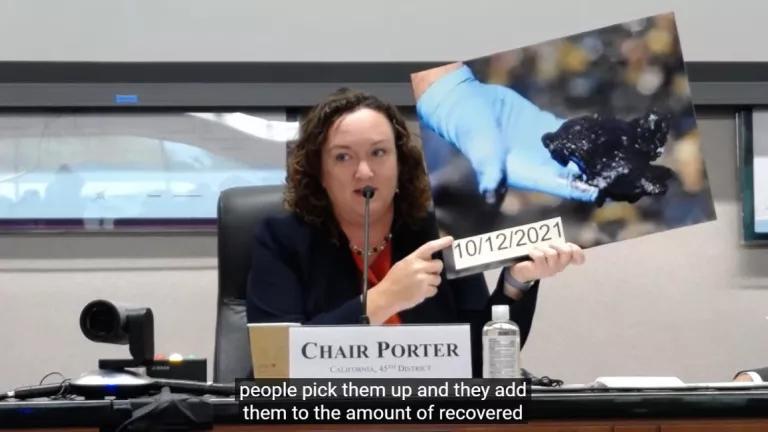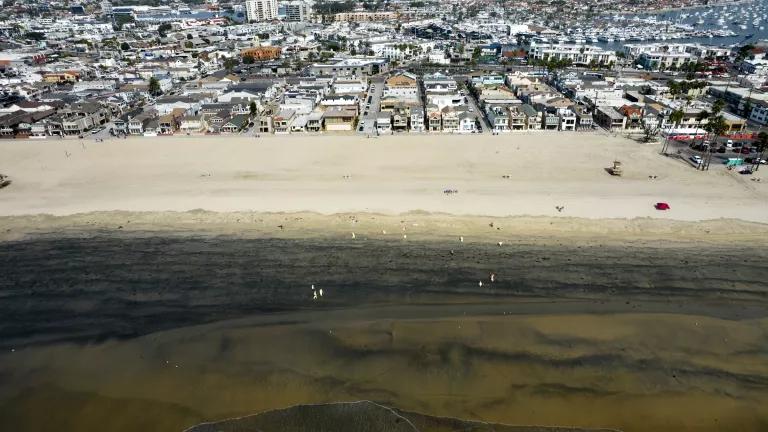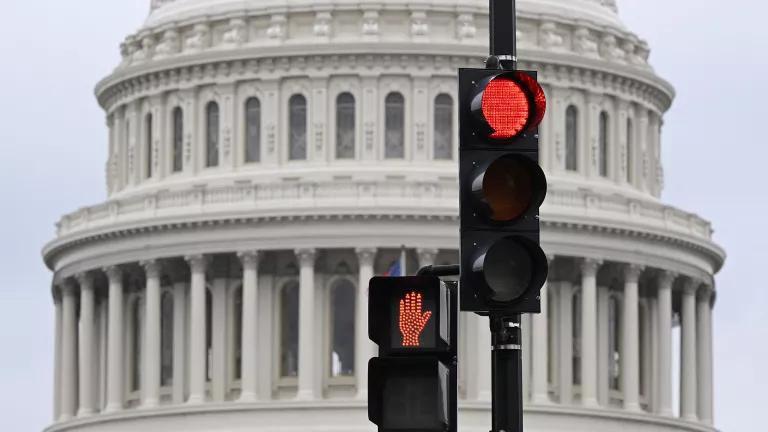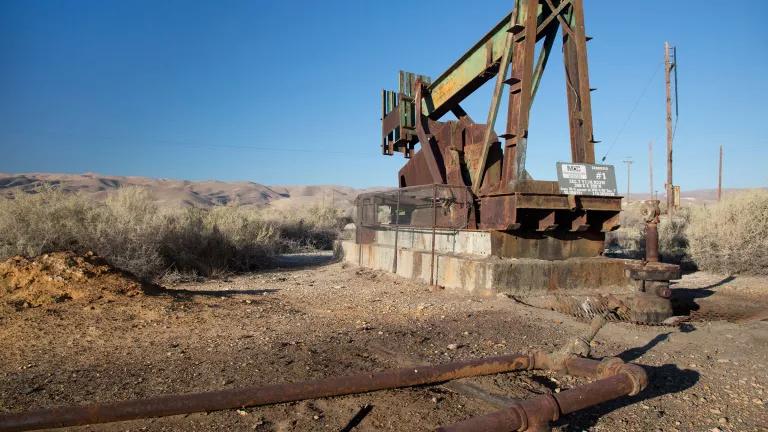House Committee Hears Testimony on California Oil Spill
The only way to prevent future spills is to stop issuing new leases and ramp down offshore oil production. Every offshore spill begins with an oil or gas lease.

Rep. Katie Porter, chair of today's hearing, holds up an image of a tar ball to illustrate one source of damage from the spill.
The House Natural Resources Committee held a hearing today on how the disastrous oil spill two weeks ago in Southern California has affected coastal communities, businesses, and the environment. Tens of thousands of gallons of oil spilled from a ruptured pipeline offshore and investigators are still trying to understand exactly what caused the spill and what its long term economic and environmental impacts might be. What is clear is that the spill caused significant damages.
The only way to prevent future spills like this is to stop issuing new leases and ramp down offshore oil production. Every offshore spill begins with an oil or gas lease.
The Subcommittee on Oversight and Investigations, led by Chair Katie Porter, and the Subcommittee on Energy and Mineral Resources, led by Chair Alan Lowenthal, ran today’s hearing. They invited local business owners, spill experts, and wildlife scientists to provide testimony on how the spill has affected their businesses, communities, and the environment.
Here's how the spill upended the community and environment:
- As of October 10 workers had recovered 250,000 pounds of oily debris and 14 barrels full of tar balls from Orange County shorelines. This is only a small fraction of the total oil released, which is circulating in the open ocean, entering food chains, and falling to the ocean floor;
- Tar balls have been found as far south as Del Mar in San Diego County, and washed up on beaches in Oceanside, Carlsbad, Encinitas, and others;
- The oil spill shut down businesses and beaches in San Clemente and Dana Point and threatens the $2 billion in wages and $4 billion in gross domestic product generated by coastal economy in Orange County;
- One fisherman saw a 90% drop in sales at his fish market, hotel bookings were cancelled, and tourism drastically dropped;
- The Oiled Wildlife Care Network, an organization that cares for animals affected by oil spills, has to date collected 32 live oiled birds, 67 dead birds, five mammals, and 14 fish;
- In addition, a right whale dolphin was found stranded in poor health and was euthanized. Oil ingestion can impact dolphins’ immune systems, reproductive tracts, and other organ systems.
Oil spills pose a significant economic and environmental threat, and this is not the first to harm California. There have been significant spills in Santa Barbara in 1969, San Francisco Bay in 1988, Refugio Beach in 2015, and now Orange County—a predictable result of our failure to more rapidly transition to a clean energy economy and reduce our dependence on fossil fuels.
Continuing to drill off our coasts is not in the public interest, yet taxpayers continue to subsidize the operations of fossil fuel companies like this one. According to the ProPublica database, Amplify Energy, the owner of the offshore oil operation, received a $5.5 million Paycheck Protection Program (PPP) loan last year that was later forgiven. It is not in the public interest for taxpayer money to go to companies that violate public trust and put our environment at risk.
In addition to this direct subsidy, the oil and gas industry receives indirect subsidies. For example, communities bear the costs of oil spill cleanup, businesses absorb the loss of revenue from cancelled hotel bookings, reduced tourism, and loss of seafood sales—and none of these costs are borne by the oil and gas industry. These subsidies help keep wells active and removing fossil fuel subsidies is an essential step to reducing our dependence on fossil fuels.
We also need to end new leasing of federal lands and waters to oil and gas companies. The Administration should cancel the upcoming lease sale in the Gulf (known as Lease Sale 257) and the three additional lease sales scheduled in the existing Five-Year Program, and develop a new Five-Year Program with a null lease schedule. Our coastal economies, communities, and environment depend on it.




